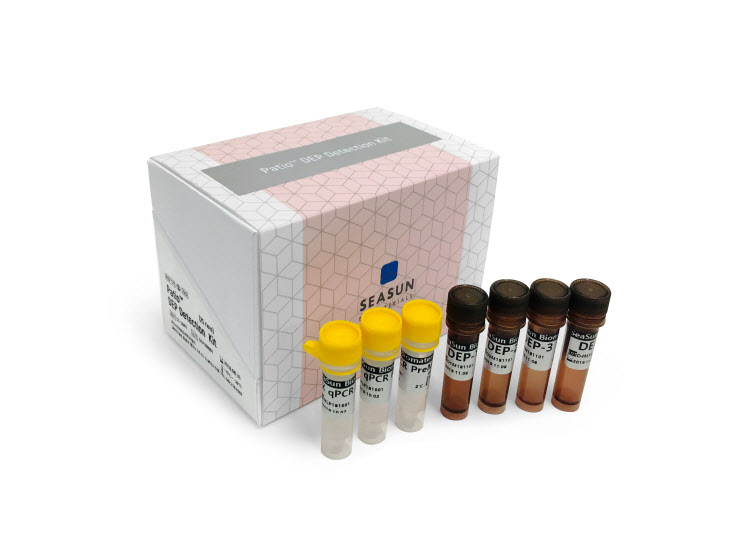
215 maternal amniotic subjects, test accuracy 100% efficacy and stability… Preparing to enter China and Europe
SeaSun Biomaterials' Patio DEP Detection Kit, a fetal chromosome abnormality detection product developed by its company, was approved by the Ministry of Food and Drug Safety on the 28th of last month as the first prenatal diagnostic test product in Korea. It was announced on the 9th that it has obtained 3rd grade)
As a result of discriminating three major fetal malformations using the Patio DEP kit for amniotic fluid of a total of 215 mothers for 14 months from April 2017 to April 2017, SeaSun Biomaterials confirmed the effectiveness and stability of 100% sensitivity and specificity. He explained that it was recognized and finally approved by the Ministry of Food and Drug Safety. The clinical trial was led by a team of professors of obstetrics and gynecology at Seoul National University Hospital.
Until now, as tests to determine the prenatal type of the fetus, a biopsy using an amniotic fluid puncture and the next generation nucleotide sequence analysis method (NGS) using amniotic fluid or maternal blood as samples have been mobilized. Both are a kind of medical service performed by a hospital or an external consignment testing institution commissioned by a hospital, and the time required for the examination was longer than one week.
However, using PDDK reduces the inspection time to 4 hours. An official of this company said, “Existing NIPT service organizations notified the mothers of the reading results only after 2-3 weeks, but for NIPT products of Sisun Bio, the analysis time is a total of 4 hours, and the results are provided within 2 to 3 days, even through medical institutions. It will be able to greatly reduce the psychological pressure of mothers and families who are keen on fetal health.” He also added, “Many existing companies have introduced foreign technologies, resulting in a large patient burden and foreign currency outflow, and we have resolved the vulnerability that exposes limitations to technology development.”
According to the medical community, fetal malformations have more than doubled in the past five years due to the effects of maternal aging, and the importance of prenatal diagnosis is being emphasized. Down's syndrome, Edward's syndrome, and Patau's syndrome are the three most common fetal malformations, and unlike normal fetuses, the number of specific chromosomes is one more. Existing real-time PCR has many limitations in screening out subtle numerical differences in chromosomes.
Currently, the Korean Society of Obstetrics and Gynecology is conducting amniotic fluid tests for elderly mothers 35 years of age or older, mothers with a family history or experience of giving birth to children with chromosomal abnormalities, and high-risk groups in the non-invasive prenatal test (NIPT). It is recommended to be implemented.
Following the sale of this amniotic fluid test product, Sisun Bio is also undergoing approval procedures from the Ministry of Food and Drug Safety for NIPT, which uses maternal blood. Currently, the clinical trial for 2000 mothers is in the final stage, and after the verification is completed, the service will begin in the first half of this year.
Park Hee-kyung, CEO of SeaSun Biomaterials, said, “The Patio technology, which was first applied to prenatal amniotic fluid testing products, is the only domestic proprietary technology in the world, and is expected to show its true value not only in Korea but also in the global market.” "We are pursuing advancement to the market."

관련전문:
http://www.viva100.com/main/view.php?key=20190109010002811
http://www.edaily.co.kr/news/read?newsId=03637526622355424&mediaCodeNo=257&OutLnkChk=Y
http://www.sportsseoul.com/news/read/717711
http://www.fnnews.com/news/201901071750168128
http://news.hankyung.com/article/201901083136f